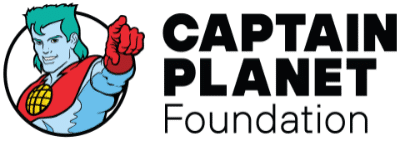Grants
ecoSTEM Kits

Captain Planet Foundation has supported over 2,500 projects around the world, and we have reviewed thousands more project proposals. Over the years, specific types of environmental stewardship projects have emerged again and again – and final reports and outcomes have provided numerous lessons and best practices.
Based on these findings, Captain Planet Foundation has developed four ecoSTEM Resource Kits, which are perfect for educators getting started with project-based learning. These custom-curated and designed collections of lessons and materials facilitate ecoSTEM learning and using the environment as a context for applying knowledge. Kits include cutting-edge project techniques, 3-dimensional learning, citizen science, and the best materials and equipment identified for each project.

EARTH ECOSTEM KIT
Mini-stream tables and soil test kits provide the tools for students to observe erosion and analyze soil composition. A drip irrigation kit offers a chance to engineer water solutions in the school garden. Students can investigate decomposition with a see-through composter and minimize cafeteria waste by feeding lunch scraps to worms. Reusable snack cozies will help limit use of disposable plastics. Students will design a stewardship project to recycle, reduce waste, refuse disposables, re-purpose used materials, or create compost to improve soil health.
Earth QuickStart Guide
POLLINATION ECOSTEM KIT
Bring your classroom to life with everything you need to plant an outdoor pollinator garden. This kit includes a classroom set of hand lenses, bug viewers, and field microscopes to get EVERY child engaged in outdoor learning. The cargo wagon, gloves, trowels, and seeds, as well as a gift card for local purchase of a raised bed and compost, will enable students to design and build a schoolyard pollinator habitat.
The kit also comes with a classroom set of milkweed seeds for students to take home. When students plant milkweed seeds at home, they will create a monarch butterfly corridor or “way station”. A butterfly rearing kit lets students observe the phenomenon of metamorphosis, and the monarch health project enables students to contribute research that may help stop the decline of the monarch butterfly.
Pollination QuickStart Guide
RENEWABLE ENERGY ECOSTEM KIT
Knowledge is power and this kit sizzles with hands-on learning opportunities. Students will investigate electrical circuits by building snap-together electronic projects that demonstrate renewable energy. Invention kits provide opportunities to design and build wind, water, and solar powered devices. Students can test variables, using multi-meters to measure the electricity generated by their inventions, and then refine the designs.
Energy QuickStart Guide
WATER ECOSTEM KIT
This amazing collection of hands-on learning tools will leave kids awash in knowledge of how their choices impact the health of the local watershed. A water cycle kit enables students to model evaporation and precipitation. Students will use the water quality monitoring kit to investigate stream health by testing physical and chemical parameters or searching for pollution-sensitive macro-invertebrates. Actual samples from the Pacific garbage patch will let students explore how plastic pollution affects our oceans and wildlife. Students can then design and conduct a community education project, marking storm drains to prevent dumping – and making an impact on the local watershed by reminding the community that what goes in the drains ends up in the rains!
Water QuickStart GuideWays to Get an ecoSTEM Kit
Apply for a Grant
A limited number of ecoSTEM Kits are granted out during each grant cycle.
Apply